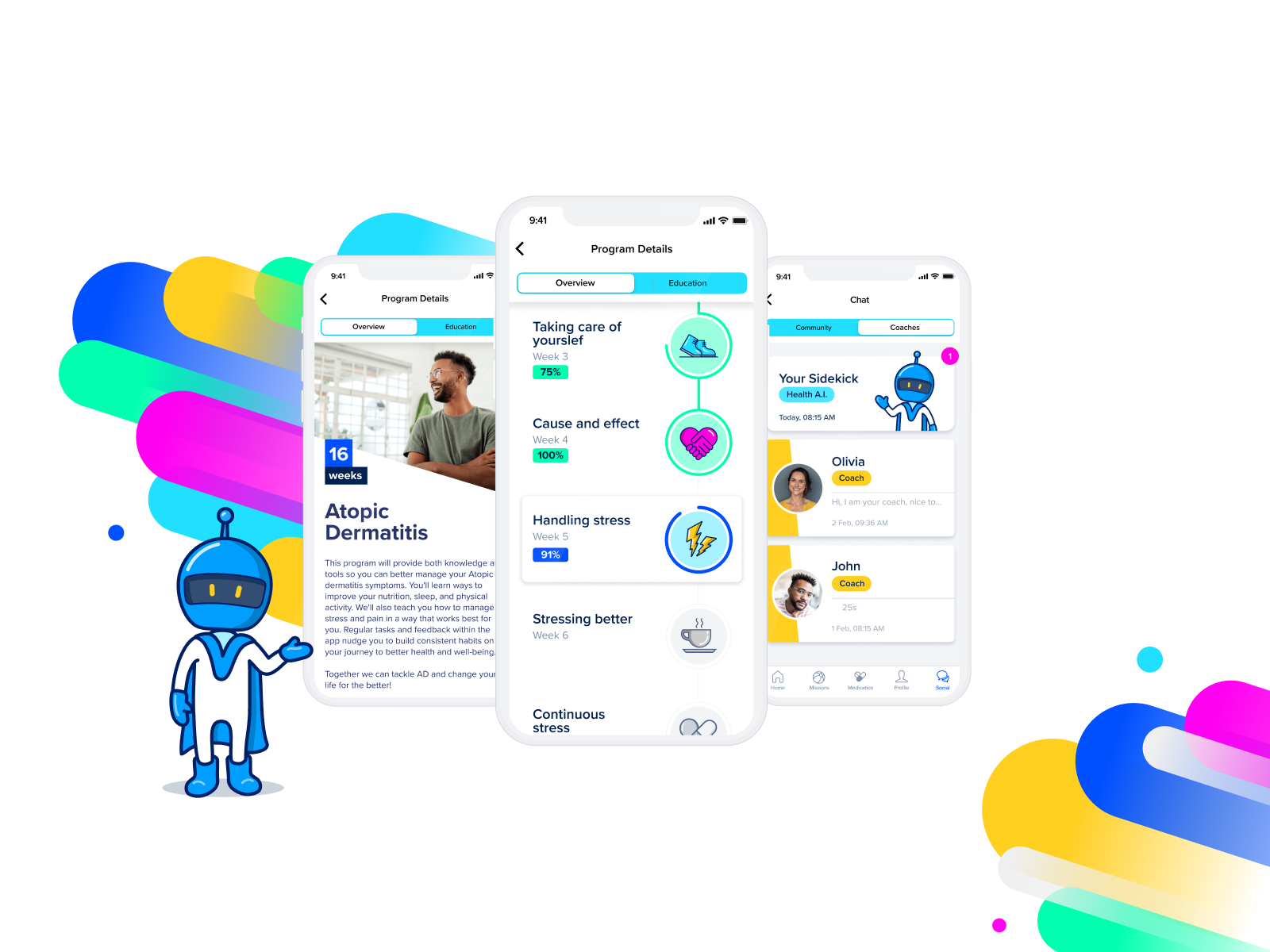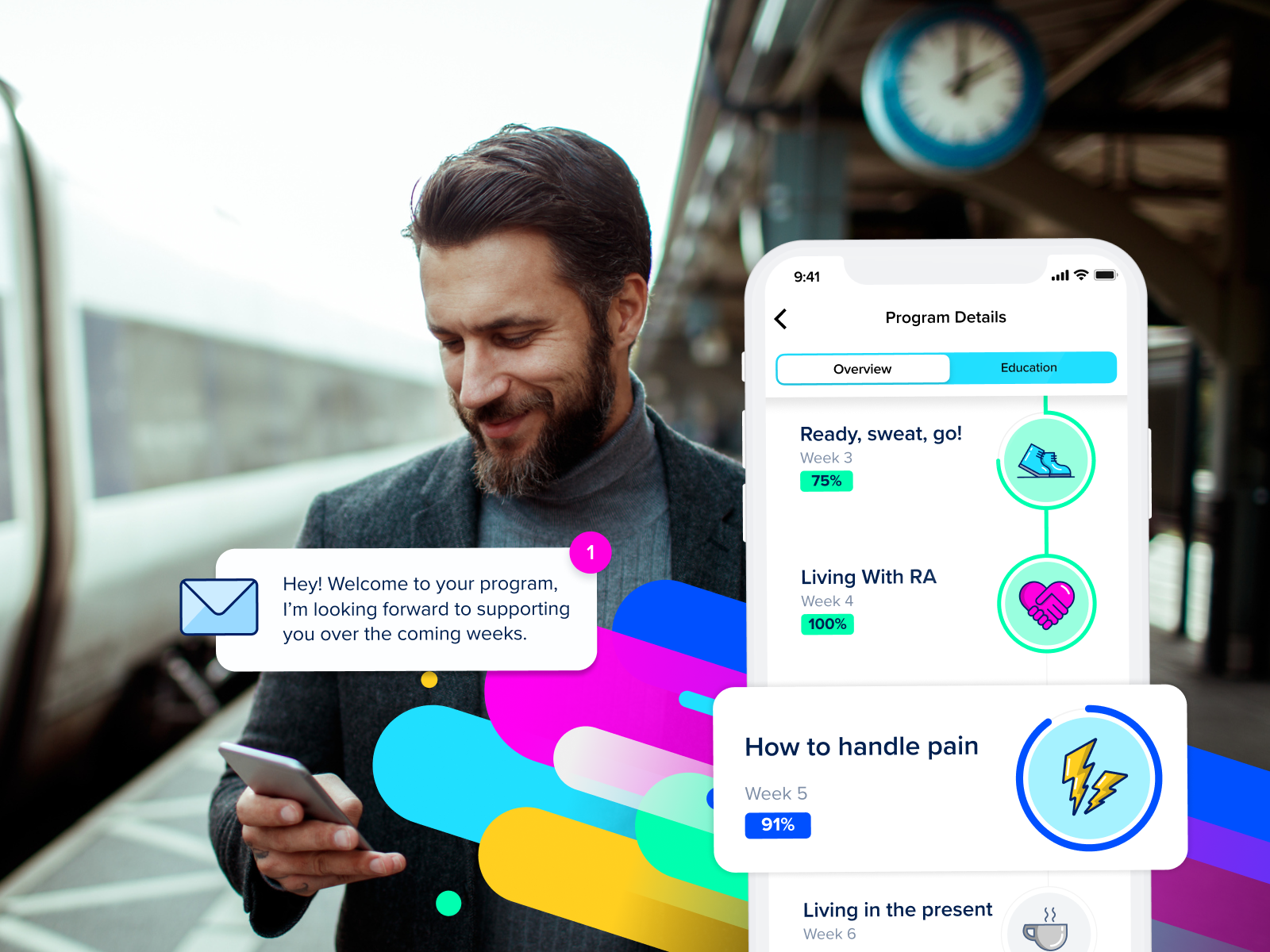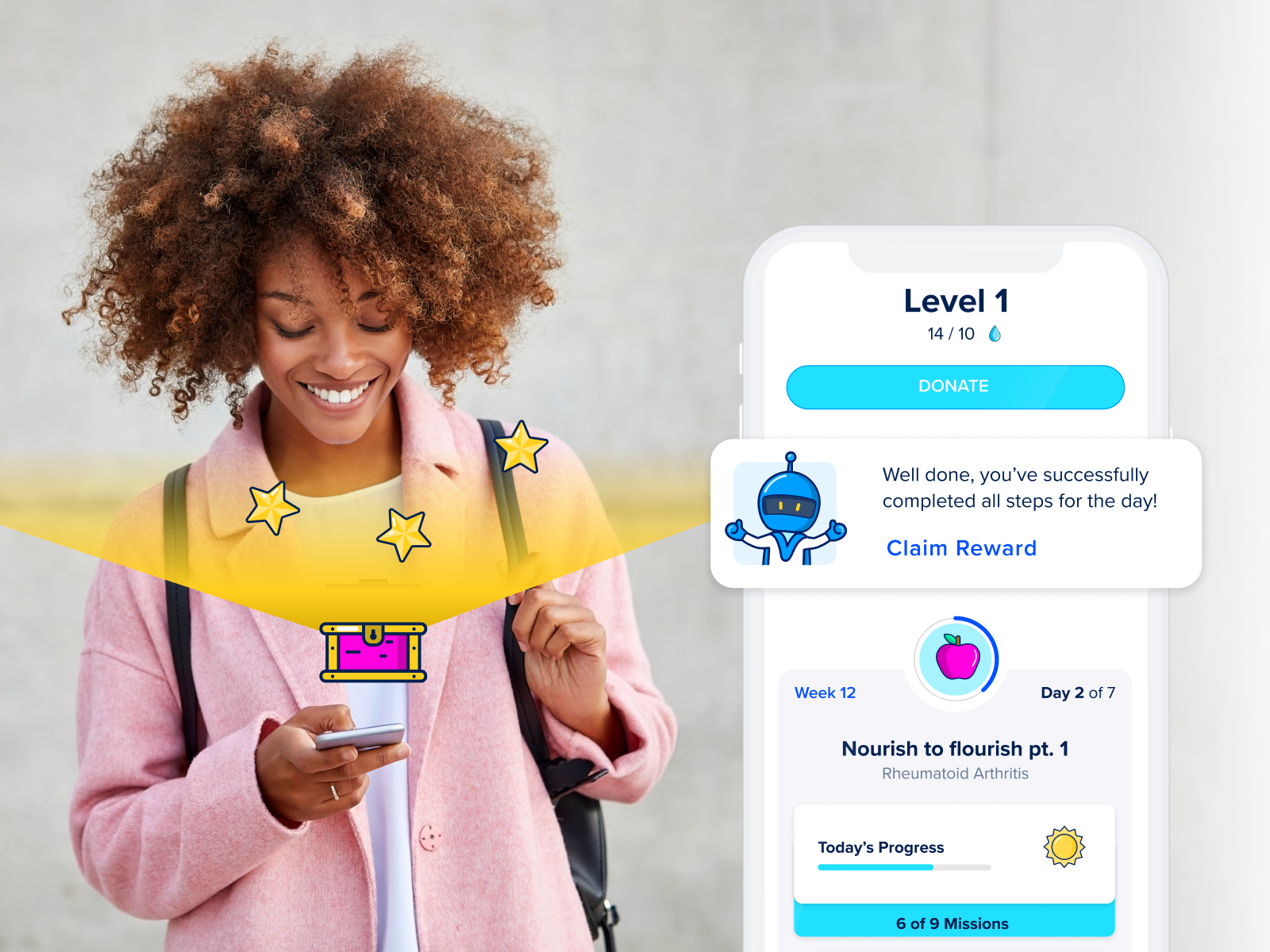WoW Woman in Health Tech I Pamela Stahl, Chief Commercial Officer of Sidekick Health
Pamela Stahl is the Chief Commercial Officer of Sidekick Health, the European digital therapeutics (DTx) innovator.
Sidekick operates a scalable digital care platform in partnership with some of the biggest names in pharmaceuticals and healthcare, including Pfizer and Bayer, to provide support to people with chronic illnesses at every stage of their treatment journey. Sidekick delivers healthcare into people’s homes via a smartphone app, enabling them to augment traditional drug treatment by developing integrated combination therapeutics consisting of a drug (Rx) and a DTx, as well as creating a standalone prescription DTx (PDT).
Pamela has over 25 years of experience across the healthcare spectrum. Most recently, she served as President and CEO of Anthem Blue Cross and Blue Shield of Georgia, where she was responsible for their third largest commercial health plan with $2.7B in revenue and 1.3 million members.
Pamela, tell us a bit about your background and your projects so far.
I have over 25 years of experience across the healthcare spectrum. Notably, I have been Vice President of the Sales Operations and Effectiveness team at Anthem, Chief Commercial Officer for Invivo Therapeutics, a biomaterials and biotechnology company, and CEO of UnitedHealthcare’s Community Health Plan of Wisconsin. My most recent work has been as the President and CEO of Anthem Blue Cross and Blue Shield of Georgia.
But more specific to my work at Sidekick, an earlier job of mine was Head of Sales and Marketing for American TeleCare, the first U.S. company to offer people telemedicine at home. Today it sounds like a very established and achievable concept, but back then our biggest challenge was patients often didn’t have access to Wi-Fi. So, for me when I joined Sidekick, the company defining the next generation of healthcare, as a digital therapeutics leader and third pharma pioneer, it was like I’d come full circle.
How did you get into the healthcare industry?
As you can imagine, being a doctor’s daughter meant that dinnertime conversations often gave me an interesting peek behind the medical curtain. It was a world that fascinated me, and even from an early age he would let me tag along with him when he was visiting patients at the hospital. Seeing your father work in the world of caregiving really emphasised the importance of empathy and the connectedness of healthcare. When I reflect on where I am today, I can’t deny the impact that witnessing that doctor-patient relationship has had on my own sense of responsibility that I feel in my current role and for our industry.



How long did it take you to be where you are now? What was the biggest obstacle? What are the challenges of being in the industry you are in?
I’ve dedicated my entire working life to the healthcare industry, and on reflection, I’m still amazed how it has transformed over my 25-year tenure. I’ve been extremely privileged to be associated with companies that have brought truly innovative ideas and products to the healthcare market; whether they be novelty drugs, medical devices, or member experiences and platforms, including telemedicine.
Though it has been a humbling experience, even when working with forward-thinking companies on something truly impactful, the big picture can still often be quite disconnected, and move with an inertia that doesn’t always support the speed of innovation. There is still a great deal of work to be done to improve outcomes, lower cost of care, and enable people to feel more positively engaged in their own health.
What are your biggest achievements to date?
My family, of course. As a mother, I’m incredibly proud and inspired to see my adult children start their own careers. It’s a testament to having done more right than wrong. To have both my son and daughter refer to me as their mentor, and not just their mom, it makes me proud that they think of me in this way.
However, when considering my professional achievements, my mind immediately goes to my impact on people, not on numbers. Seeing people that have worked with me advance in their own careers in such a positive way, and increase the collective impact we have on people’s health and outcomes is the ultimate achievement.
What are the projects you are currently working on?
The main project I am currently working on at Sidekick is supporting the company’s growth in the U.S. I specifically joined to help make Sidekick’s American expansion a success. As you can imagine, that includes building out a team in the U.S., while activating and increasing our U.S. footprint. As a Nordic-founded company - now operational across the world - it’s an exciting prospect to think about how our value proposition will resonate with and solve the challenges of a global audience. In my opinion, Sidekick is in a unique position in the digital health space. We are the only company today who is committed to supporting multi-chronic conditions from a patient-first perspective, which I believe will have a massive and very real impact on the way the U.S. healthcare system is able to support patients at scale.
Is the #WomenInTech movement important to you and if yes, why?
Historically, women have not consistently been included in clinical trials, had the same chances to progress their career, or had equal opportunities across social issues. We need both accurate and international representation to support all people and to ensure inclusivity at every intersection. This applies not only to gender but also ethnicity and age.
What will be the key trends in your industry in the next five years and where do you see them heading?
Putting the patient first is something that I’ve always valued, but thanks to modern technology I believe that patient empowerment is now a genuinely achievable milestone. Although relatively new to the field of digital health, digital therapeutics can provide the information, tools and support enabling patients to make the best decision for themselves and their health. Aside from this, I believe striving for better electronic health records and interconnectedness between healthcare stakeholders will also be a key development in the healthcare sector. Interoperability and ownership of data are foundational pillars that I believe should be central to the future of medical data.
What is the most important piece of advice you could give to anyone who wants to start a career in this industry?
Always focus on the patient first, as a human being; success everywhere else will follow. Always come back to empathy and understanding as your compass for success, don’t ever lose sight of that.
Who are three inspirational women in your respective industry you admire?
Gail Boudreaux has motivated me for much of my professional career, with her achievements as both a college athlete and as a business leader. But her success in the healthcare industry, being named by Forbes as one the most successful women in the world, further adds to her inspirational list of achievements.
Jeannine Rivet also springs to mind as another female icon in the healthcare industry. She has long been an intense champion for a better healthcare system and a better way for it to work; requiring us all to be better is something I wish I could see more people advocating. In addition, she has been a steadfast advocate for being intentional about creating a healthy, high performing corporate culture that inspires excellence and inclusivity.
And of course, my daughter. As a woman building her career in tech, she never fails to generate immeasurable inspiration and pride. Her growth and achievements remind me why I must always push to achieve above and beyond my personal expectations.
Find out more about Sidekick Health on their website. Follow Sidekick Health on LinkedIn and Twitter. Connect with Pamela on LinkedIn.
This interview was conducted by Marija Butkovic, Digital Marketing and PR strategist, founder, and CEO of Women of Wearables. She regularly writes and speaks on topics of wearable tech, fashion tech, IoT, entrepreneurship, and diversity. Follow Marija on Twitter @MarijaButkovic and read her stories for Forbes here.


